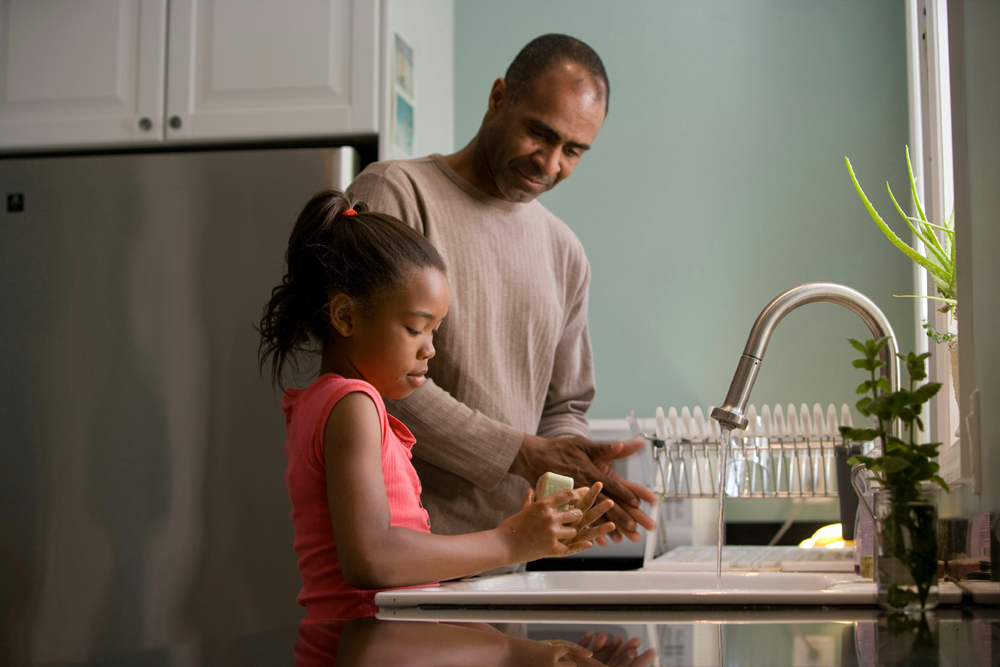Parents, it is imperative that you develop within your children an “internal locus of control.”
People with an internal locus of control believe that they are in charge (within reason) of their lives. They believe that their lives are up to them, that their actions are up to them, and that their success or failure largely depends on themselves.
People with an external locus of control believe that their lives are dictated by forces outside of them. They believe that their lives are determined by others, that their actions are not under their control, and that their success or failure is largely the responsibility of someone else.
Unfortunately, we are seeing more and more people living with an external locus of control. The entire “triggering” thing going on now basically says that another person’s words or actions will cause me to lose all self-control and my actions from that point forward are no longer my responsibility. People who are “triggered” are demonstrating that they have an external locus of control.
Victimhood, which is incredibly popular today, is a result of an external locus of control. People who believe that the deck is always stacked against them, that “the man” is keeping them down, and that their failure in life is the result of others rather than their own work ethic/dedication/talent/you name it are growing in number and I don’t see it going down anytime soon.
Parents, unless you want your children viewing life helplessly, like they are driftwood on the ocean being tossed about by forces totally outside their control, you need to radically change how you teach your children to view life.
We must raise our children to see life as a great spiritual adventure rather than a terrifying minefield. We must raise children to believe that they are responsible for their success or failure, not anyone else. We must raise children who know that life isn’t fair and never will be, and that sometimes life will be unfair AGAINST you and sometimes life will be unfair FOR you.
A child with an internal locus of control will respond to challenges with self-confidence. A child with an external locus of control will respond to challenges with panic, looking to others to “right the wrong” that has occurred.
A child with an internal locus of control will set goals and work towards achieving them. A child with an external locus of control will wait to see what the circumstances are before moving.
A child with an internal locus of control will look at his or her character and abilities and say, “I can do this.” A child with an external locus of control will look at the world around, all the bad stuff going on, and say, “It can’t be done.”
A child with an internal locus of control grows into an adult that has self-confidence. A child with an external locus of control grows into an adult who has a victim mentality.
My parents raised me to have an internal locus of control. If I bombed a test, they would tell me, “You didn’t study hard enough.” Going to school the next day, I was shocked to hear so many of my classmates say, “The teacher hates me.” Or “That test wasn’t fair.” Or my all-time favorite, “She GAVE me an F” (I’ve never heard a student say, when acing a test, “She gave me an A).
My parents never allowed me to use that kind of thinking. I had to own it. It was my responsibility.
Were there some tests that were unfair? Probably.
Were there some teachers that didn’t like me? Undoubtedly.
Was I allowed to use that to shape my worldview? Nope.
Parents, do not let your children develop an external locus of control helplessness worldview. Our lives are completely up to us. The sooner your children realize this, the more confident, well-adjusted, and successful they will be.
Are there unfair forces out there? Probably. Not as many as people would like to think, though.
Are there things that happen outside of our control? Sure. But not powerful enough to stop a person determined to make it work.
Teach your children that their lives, their actions, and their accomplishments are theirs and theirs alone. Keep the victim mentality out of your home and out of their lives. You’ll be amazed at what your children are capable of as they move the locus of control from external to internal.
Internal Locus of Control

27
Feb